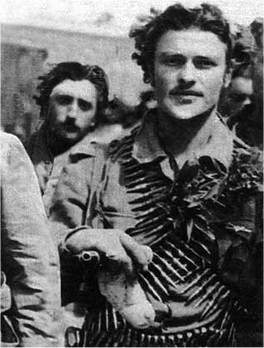Portal:Salisford
The Salisford Portal
Portale Salfortano

| |
Salisford, (Salisfordian: Salforto), officially the Kingdom of Salisford (Salisfordian: Regno di Salforto), is a nation located on the northern coast of Sur. Salisford is bordered to the north by the Alzanub Sea, to the south by Creeperopolis and El Salvador, to the west by the Almanople Ocean, and to the east by Montcrabe. Salisford's capital and largest city is Savotta located on Salisford's northwestern coast. As of 2020, Salisford has a population of 74.2 million.
(History)
Salisford is a semi-democracy ruled by a hereditary monarch and assisted by an appointed first minister. Salisford's monarch is King Francesco II, who has reigned since 2015. Salisford's legislative body is the Salisfordian Parliament which is bicameral legislature made up of an elected Grand Council, which serves as the lower house, and an appointed Senate, which serves as the upper house.
(Economy, HDI, Industries)
Salisford is a founding member of both the Terraconserva Council of Nations and the Cooperation and Development Coalition.
The Rubicon War (Creeperian: Guerra del Rubicón; Salisfordian: Guerra del Rubicone) was a major war in Sur which occurred in two phases between 1961 and 1976. The war was fought between Creeperopolis and Salisford over a territorial dispute along the Rubicon River, which marked the border between the two nations. Despite the Salisfordian military victory in the first phase and the Creeperian military victory in the second phase, the war ended in a diplomatic stalemate as neither Salisford nor Creeperopolis made any significant gains as a result of the conflict.
In 1936 during the Creeperian Civil War, the Catholic Imperial Restoration Council (Imperial Council) made a secret agreement with the Salisfordian government to partition the nation of Castilliano in an effort to end a brief conflict being fought between Castilliano and Salisford and to get the Salisfordians to send volunteers to help the Imperial Council against the National Council for Peace and Order (National Council). Despite the agreement, after the war ended in 1949 and Castilliano was annexed by Creeperopolis, the Creeperian government did not allow Salisford to take territory from Castilliano as was promised due to Creeperopolis making a separate agreement with Castilliano ensuring their protection. In 1952, Salisfordian First Minister Sandro Neri pressed Creeperopolis to fulfill the agreement and cede the promised territory to Salisford, however, the Creeperian government refused citing all of Castilliano as "an integral part of Creeperopolis." Read more...- Salisfordian forces participate in the CODECO Mission in Sequoyah to restore constitutional order to Sequoyah.
- King Francesco II announced a new program to provide grants to historic churches in rural Salisford.
- Carlo Valenza appeared on popular political commentary show Politica Oggi to speak on the current geopolitical situation.
- Gendarmeria Reale forces in Angamo announced a successful raid against a Esercito Nero safehouse with 23 suspected members detained.
- The Salisfordian Church begins preparations for their participation in Lent and for the celebration of Easter.

Armed men return fire against a sniper during the June Mutiny, 1969.

Vito Bendeto, 15th Count of Carzi, (7 February 1927 – c. 1974) was a Salisfordian political theorist, partisan, and communist revolutionary. He is notable for theorizing the Carzian ideology and for his role in the Salisfordian Civil War, where he led a communist paramilitary group. He most famous work is the book L'operaio, lo Stato, e la Chiesa, which laid out the basic tenets of his political ideology.
Vito di Carzi was born in 1927 to a moderately wealthy noble family. He was educated in his early life by Salforti Catholic clerics and as a young adult he attended the University of Serino. It is widely believed that when he was attending university, he was exposed to marxism and would become a proponent of marxist theory. In 1947, he would leave university and cross the border into Creeperopolis with the intention of joining the Miguelists in the Creeperian Civil War. He would ultimately end up finding the Ejército Rojo Ateo (ERA) and would join a a foreign volunteer. While serving for the Miguelists, Vito would witness atrocities committed by the ESTARES. Vito would later condemn these atrocities in his later works. Vito would later desert the Miguelists and would sneak back over the border into Salisford, where he would think on what he saw in the Creeperian Civil War. Read more...List of selected articles
|
|---|
- ...that Cape Rejo is the most northwestern point of the Southern Landmass?
- ...that Salisford uses the Lira as its currency?
- ...that Salisford is a hereditary monarchy?
- ...that Salisford's dominant language is Salisfordian?
- ...that Salisford was a republic from 1782 to 1790?
- ...that the anniversary of Queen Maria III's death is observed as a day of mourning in many Salisfordian provinces?
- ...that the head of the Salisfordian Catholic Church is Patriarch Nikola di Tralva?
- ...that Salisford currently constitutes the death penalty for abortion?


